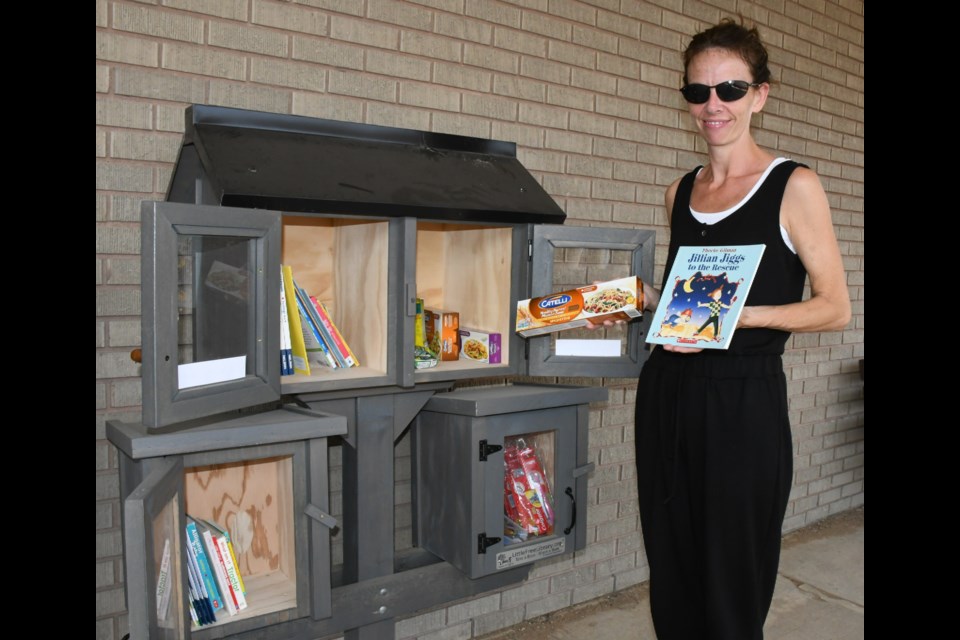If you need a book for the beach or a lazy afternoon at home and can’t get to the library, three regional agencies hope you’ll use free little library boxes to meet your literary needs instead.
There are 17 boxes in Moose Jaw and 10 in Assiniboia, Aylesbury, Avonlea, Caronport, Elbow, Glentworth, Gravelbourg, and Wood Mountain. The structures contain books that can be exchanged for others anytime and are aimed at people who cannot easily buy or rent books.
Depending upon where the boxes are and who looks after them — school divisions, private citizens, or social agencies — other objects can also be donated, such as puzzles, games, toiletries, diapers, feminine hygiene products, winter clothing, and non-perishable food.
The Moose Jaw Literacy Network, Moose Jaw Early Years Family Resource Centre and South Central Food Security Network have been promoting the boxes lately and the items they contain.
“The free little libraries are a great way for the community to connect and exchange resources … ,” said Sarah Regent, co-chair of the food security network. “These little libraries can (also) be a good place — if they’re built properly — to leave dry goods (or) canned goods or that kind of thing in the wintertime.”
These structures can support people with intermittent food needs, especially those who feel stigmatized about accessing other supports or are facing a rough patch and need something temporary, she continued. People can also take hygiene products from the boxes if they can’t purchase them.
There is always a section of the population that faces food security issues, Regent added. This is something the food network is attempting to address from different angles and with different partners.
Most library boxes have been well used over the past few years, said the literacy network’s Christine Boyczuk. Depending upon how busy a location is, she will travel around Moose Jaw restocking boxes with new materials about once a month.
The three agencies realized that with people travelling regularly in the summer, now was a good time to promote the library boxes, she continued. Some locations are busier than others — in Moose Jaw that includes a box in the Sunningdale neighbourhood and on South Hill — to the point where the boxes occasionally overflow with materials.
The boxes really “took off” during the pandemic when library buildings were closed, forcing residents to use these structures to meet their reading needs, she continued. Books borrowed from one location were removed from circulation for 72 hours for sanitization and then taken to another location.
“We don’t really have a way of keeping track of which books are more popular,” Boyczuk said. “Obviously, at the family centre (on 11th Avenue Northwest), it would be children’s books that would be more popular. The one on Calypso (Drive) would tend to be adult books that are used more.
“There’s no science to it, to be perfectly honest.”
While the agencies don’t track how many people use the free little libraries, the Ministry of Education likes to know how many users there are. However, that’s difficult to do, admitted Boyczuk, since the partners thought protecting people’s privacy was more important than counting how many bookworms were borrowing materials.
The addition of pantries to some boxes was also a big hit during the pandemic, she continued. While not all the containers can store books and food or toques and mitts, the agencies ensured certain boxes were stocked where the need was greatest.
Research shows that people benefit when there are many books at home since reading materials enrich lives and take readers to far-off places right from their couches, added Boyczuk. Additionally, for kids who read, they can meet outcomes in school, be successful, and become better all-around readers — an imperative by Grade 3.




